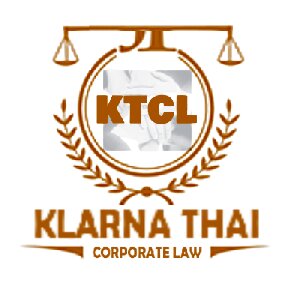Best Juvenile Law Lawyers in Watthana
Share your needs with us, get contacted by law firms.
Free. Takes 2 min.
List of the best lawyers in Watthana, Thailand
About Juvenile Law in Watthana, Thailand
Juvenile law in Watthana, a district within Bangkok, Thailand, is a branch of law that specifically deals with legal matters involving individuals under the age of 18. The Thai Juvenile and Family Court Act and associated statutes are designed to protect the rights of minors, promote rehabilitation, and ensure that young offenders receive fair treatment. These laws place emphasis on the well-being and future prospects of juveniles, prioritizing education and rehabilitation over punitive measures. In Watthana, the relevant courts and legal institutions handle cases such as juvenile crime, child custody and protection, and matters involving minors who are victims or witnesses.
Why You May Need a Lawyer
There are several situations where the expertise of a lawyer specializing in juvenile law may be crucial. These include cases where a minor is accused of a criminal offense, situations involving child custody disputes, or when a child is at risk of abuse or neglect. Lawyers are also needed to represent minors in court, advocate for their best interests in family law proceedings, and provide guidance to guardians about their legal rights and obligations. If a minor is facing detention, legal intervention can help ensure that appropriate alternatives are considered and that the child's rights are protected throughout the process.
Local Laws Overview
Watthana follows Thailand's national framework for juvenile and family matters, centered on the Juvenile and Family Court Act B.E. 2534 (1991) and the Child Protection Act B.E. 2546 (2003). Some key aspects include:
- The legal definition of a juvenile is anyone under 18 years old.
- Juvenile offenders are generally tried in a separate juvenile court, which aims to rehabilitate rather than punish.
- Detention is considered a last resort for juveniles. Alternatives such as probation, counseling, and community service are often preferred.
- Special procedures and protections are in place for minors during police investigations and court proceedings, such as ensuring privacy and the presence of guardians or legal representatives.
- Local authorities in Watthana may refer certain cases to social welfare agencies for intervention or support.
- Child victims or witnesses are granted special rights to avoid re-traumatization during legal processes.
- The law emphasizes family involvement and encourages solutions that promote family unity and the minor's welfare.
Frequently Asked Questions
What age is considered "juvenile" under Thai law?
A juvenile is defined as any individual under the age of 18 in Thailand, including Watthana district.
What happens if a minor is accused of a crime?
If a minor is accused of committing an offense, the case will usually be referred to the Juvenile and Family Court. The process focuses on rehabilitation, and measures such as mediation, counseling, or probation are often used instead of jail time.
Are children detained in adult facilities?
No, children are not placed in adult detention centers. If detention is necessary, juveniles are held separately in facilities tailored for minors, with an emphasis on education and rehabilitation.
Can a child be questioned by the police without a parent or lawyer?
Thai law requires that a parent, guardian, or legal representative be present during police investigations with a minor. The process is designed to protect the rights and welfare of the child.
What are the rights of a minor during court proceedings?
Minors have the right to legal representation, the right to privacy throughout legal proceedings, and the right to appropriate interpretation services if needed. The court adapts procedures to accommodate the minor's age and understanding.
What should I do if I suspect a child is being abused or neglected?
If you suspect a child is being mistreated, report the case to the Watthana District Office, local social services, or the police. Emergency assistance may also be requested from the Child Protection Center authorities.
How are custody disputes involving minors resolved?
Custody issues are handled by the Juvenile and Family Court, which bases decisions on the best interests of the child. The process may involve mediation, counseling, and input from social workers.
Can a juvenile's criminal record affect their future?
Juvenile records are generally confidential and not accessible to the public. In most cases, a juvenile record will not affect future opportunities, although some exceptions may apply for serious crimes.
What alternatives to detention are available for juveniles?
Alternatives include probation, community service, educational programs, counseling, and placement in foster care or halfway houses, depending on the nature of the case and the child's needs.
How can a lawyer help in juvenile law matters?
A lawyer can ensure a minor's rights are upheld, provide representation in court, negotiate with authorities, advocate for less severe measures when appropriate, and guide families through complex legal procedures.
Additional Resources
For further support or information, consider reaching out to these resources:
- Juvenile and Family Court, Bangkok
- Watthana District Office, Department of Social Development and Welfare
- The Office of the Attorney General's Juvenile Affairs Division
- Child Protection Center (Bangkok)
- Thai Lawyers Council
- Human Rights Commission of Thailand
- Thai Child Rights Foundation
Next Steps
If you or your child are facing a legal situation related to juvenile law in Watthana, the first step is to contact a lawyer who specializes in this area. Collect all relevant documents and details about the case. Make note of important dates, such as court appearances or deadlines for submissions. If immediate protection or intervention is needed, contact the police or child welfare authorities in Watthana. Many lawyers offer initial consultations to assess your situation. Seeking professional legal advice early can protect the child’s rights and ensure the best possible outcome.
Lawzana helps you find the best lawyers and law firms in Watthana through a curated and pre-screened list of qualified legal professionals. Our platform offers rankings and detailed profiles of attorneys and law firms, allowing you to compare based on practice areas, including Juvenile Law, experience, and client feedback.
Each profile includes a description of the firm's areas of practice, client reviews, team members and partners, year of establishment, spoken languages, office locations, contact information, social media presence, and any published articles or resources. Most firms on our platform speak English and are experienced in both local and international legal matters.
Get a quote from top-rated law firms in Watthana, Thailand — quickly, securely, and without unnecessary hassle.
Disclaimer:
The information provided on this page is for general informational purposes only and does not constitute legal advice. While we strive to ensure the accuracy and relevance of the content, legal information may change over time, and interpretations of the law can vary. You should always consult with a qualified legal professional for advice specific to your situation.
We disclaim all liability for actions taken or not taken based on the content of this page. If you believe any information is incorrect or outdated, please contact us, and we will review and update it where appropriate.









